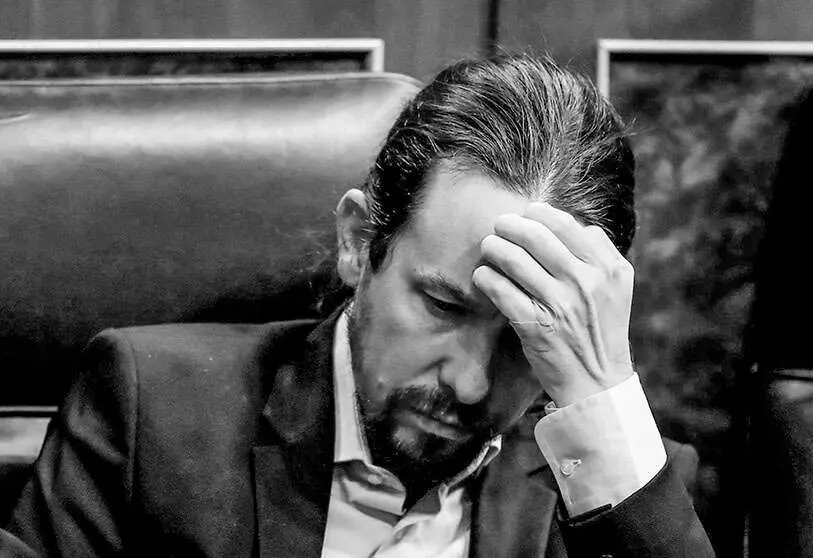Pablo Iglesias' defeat and his resignation from the government

A lot has been written about the reasons that have led the second vice-president of the Government, Pablo Iglesias, leader of the Podemos party, to resign from the Executive in order to aspire to the presidency of the Autonomous Community of Madrid. Everything has been said: personal ambition, captaining a new Popular Front against the political right that has been governing the capital region for several decades, disengagement with Prime Minister Pedro Sánchez, everything and more. However, in my opinion, the essential has not been said.
Pablo Iglesias has resigned because of his personal political failure. His plans, his dreams, his ambition to go down in history, have been frustrated. Any political leader knows that none of Spain's 14 Autonomous Communities plus the two Autonomous Cities, 16 in all, can compare with the central State and its executive branch, the national government. The Autonomous Communities, including Madrid, depend entirely on the Spanish Government: budgets, subordinate security functions, functioning and even their very existence depend on the Constitution and the Laws, and therefore on the Government of the nation. Even in the hypothetical case that Iglesias' mirage as president of the Community of Madrid were to come true, he would be tied hand and foot by the government he has resigned. And from Madrid, no matter how many followers you have, you cannot change the Laws.
So why did Iglesias slam the door on the government? What did he hope to achieve when he pompously boasted that he held the key to Spain's governability and agreed to a coalition government with Pedro Sánchez's PSOE? The purple leader had two things 'in mind', which he made explicit in his first attempt to form a government with Pedro Sánchez.
The first was to control the CNI (National Intelligence Centre), the master key that opens and closes all the doors of power. Perhaps in his mind was the example of Soraya Sáez de Santamaría who, as vice-president of the former government, had the CNI under her command and control. Although it is more likely that what Pablo Iglesias wanted from the CNI was to personally dispose of all internal and external information handled by the intelligence services. Emulating the great thinker Francis Bacon, Chancellor of England and author of The New Atlantis, Iglesias knew that "information is power"; a motto that all the world's secret services have made their own. Well, this ambition of Pablo Iglesias failed. Pedro Sánchez gave him as a Christmas present the power to participate in the Delegate Commission for Intelligence Affairs, which coordinates all the state's intelligence services. But against all the bad omens that said that the Podemos leader was going to fill his pockets and his head with important state secrets, this has not been the case. Iglesias has not had access to any strategic or vital report for Spain's security.
The second dream, closely linked to the first, was to be able to control the armed forces. Iglesias feared that, being at the pinnacle of political power, the military might dislodge him. Delusions. It is not in vain that the only militant experience he has had, apart from participating in street riots and student hullabaloo in the Aula Magna, has been his internship in Venezuela, where military mutinies and uprisings have been frequent over the last three decades, and the military has held power uninterruptedly since 1998. To this end, Iglesias counted on putting retired General José Julio Rodríguez, who was Chief of Defence Staff under President José Luis Rodríguez Zapatero, as Minister of Defence. An equally unsuccessful operation. His party colleague remains as secretary general of Podemos in Madrid, and will remain there unless he has a reaction of wounded dignity and retires for good.
Thus, Pablo Iglesias' passage through the government has only served him to get into the armoured car, carry bodyguards and periodically assault the television stations, avid in their search for headlines. But his dreams of power have vanished. So Madrid remains the lesser evil, a showcase for an outdated and ineffective populism that even his former party comrades no longer believe in. His former number two, Íñigo Errejón, whom he considered a crutch, will give him a good lead in the election results on May 4, and he says he won't take orders from any political narcissist. In short, the story of the former vice-president is that of a sad failure, which in 15 years' time will only be remembered in the newspaper archives.

